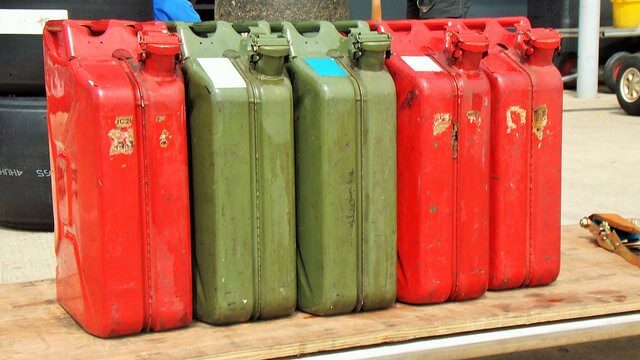
Diesel fuel is one of the most-used fuels in the world. It’s used to power freight trucks, trains, buses, boats, small trucks, small cars, as well as farm and construction equipment. Aside from transportation, it can also provide the energy needed to generate electricity for buildings.
Whether you are storing diesel for use in your watercraft or your farm equipment, it’s important to know that it will eventually become unusable.
Diesel, like regular gasoline, has an expiration date. Though stored diesel will lose its potency over time, there are a few things you can do to maximize its shelf life.
Diesel Fuel Will Expire
Despite what you see in disaster movies and zombie flicks, fuel doesn’t last indefinitely. Like gasoline, the usable life of diesel fuel is finite. Without any special treatment, it’s good for about a year.
Diesel fuel is usually made from petroleum, though it can also be produced from biomass, animal fat, biogas, natural gas, and coal liquefaction. It is different than gasoline due to the process that creates it.
Diesel is composed of up of 3 types of hydrocarbons: paraffinic, naphthenic, and aromatic. As a high-gravity crude oil, synthetic diesel fuel has a low sulfur content, making it suitable for use in transportation.
Out of all the types of petroleum fuels, diesel fuel is the first to complete the refining process when crude oil is burned. This makes diesel very stable.
This stability is why it lasts longer than other fuels, but what if you want to store it for more than a year?
How to Store It

To extend the shelf life of diesel, it’s important to carefully monitor the conditions in which you store your fuel.
- Within the US, diesel is usually stored in a yellow container in order to differentiate it from kerosene and gasoline.
- Maintain it at a temperature that never exceeds 70° F.
- Ensure the diesel is kept dry. Always store fuel in designated storage containers.
- Stay safe! Keep fuel away from sparks and flame. Ensure you’re in a properly-ventilated area when you’re filling up those jerry cans.
While you can store fuel in above-ground and underground tanks, you have to pay attention to how much empty space is in the tank. Over time, the amount of space left will contribute to how much water from condensation will accumulate in the tank.
Water accumulation in diesel fuel can result in microbial growth in the tank, commonly known as algae. This algae can cause obstructions once it’s used in engines.
How Treatment Can Help
Maintaining ideal conditions is important, but treatment can considerably extend the life of diesel fuel. Treatment options include biocides and diesel fuel stability treatments.
While you can fill storage tanks as much as possible, some water condensation is inevitable. Additionally, as diesel contains little sulfur, microbial growth is also unavoidable. In order to mitigate this issue, it’s necessary to break down the biological mass created by microorganisms. Biocides help to eliminate and destroy microbial growth.
The stability treatments help to stop the chemical reactions that result from exposure to oxygen. Oxygen is extremely volatile. Despite the fact that it’s the most stable form of crude oil, when exposed to oxygen, the stable molecules can become unstable.
Conclusion
If you own vehicles or equipment that uses diesel, you may find that you need to keep some extra on hand. If stored improperly, it will quickly deteriorate, potentially damaging your engine. However, when stored in optimal conditions, and with the addition of biocides and stability treatments, diesel fuel should last for up to 5 years.
Image credit via Flickr Creative Commons: oatsy40 and Grant W.
